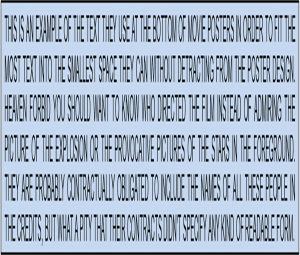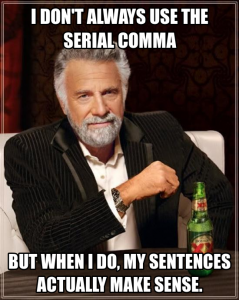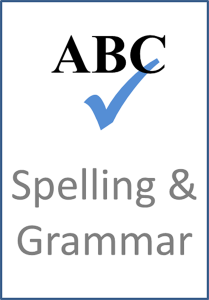Rebecca Lyles's Blog, page 3
March 12, 2016
Backup slides
 I first noticed it a few years ago, while working for a huge multinational company. Now I see it in small-potatoes presentations for modest enterprises. Are they trying to imitate the big boys in all their corporate silliness? Or are they just now catching on to what seems like a lazy way to assemble a presentation?
I first noticed it a few years ago, while working for a huge multinational company. Now I see it in small-potatoes presentations for modest enterprises. Are they trying to imitate the big boys in all their corporate silliness? Or are they just now catching on to what seems like a lazy way to assemble a presentation?
“It,” of course, is the phenomenon called backup slides. You’re forced to sit through a meeting presentation, or maybe you’re responsible for watching it online. There’s a beginning, middle, end, summary, maybe even a quiz … and then (DUN-tun-tun!) the dreaded backup slides. Usually unreadable graphs or charts or screens full of tiny print, with no context, that might or might not have anything to do with the presentation you’ve just seen.
You might use backup slides to add length to a short presentation, to show some awesome graphics or snazzy material you found that doesn’t fit, or to impress the viewers with your research skills. But none of it supports the purpose of the presentation. Imagine the equivalent of backup slides in other forms:
Fashion Week in Paris: At the end of the show, someone throws a bag of laundry on the runway and says, “Here are some designs that didn’t make the show. Feel free to rummage through them.”
Opera at the Met: After the final curtain, random understudies wander onstage, performing their favorite vocal warmup exercises. All at once.
Super Bowl: After the final second ticks off the clock, third-string players who didn’t get into the game take the field for strength and agility drills.
Seriously, if the material is important, include it in the body of the presentation with some explanation and relevance. If it’s not important, leave it out. Simple as that.
Using backup slides is as silly as ending a movie with outtakes showing bloopers (mistakes the actors made during filming) … wait … that’s a thing. But it’s called the gag reel, and it’s intended to make you laugh.
If you have a serious job with a real company, or unless you’re Jackie Chan, just don’t.
Like TextCPR on Facebook!
March 5, 2016
Cotton-candy writing
 Happy childhood memories … the county fair, the school carnival, the baseball game! The junk food—hot dogs, caramel corn, and my favorite, cotton candy.
Happy childhood memories … the county fair, the school carnival, the baseball game! The junk food—hot dogs, caramel corn, and my favorite, cotton candy.
Kids love the spun-sugar treat because it’s light, pretty (don’t think about what’s in that food coloring), easy to eat, and completely devoid of nutritional value.
Online articles often make me think of cotton candy. Puffed up, spun around, brightly tinted, full of empty calories. They catch your eye with enticing headlines, but fail to deliver the content you expect. If you would like a career as a cotton-candy-article writer, or if you’re a college student who needs an essay – fast – be sure to use these techniques:
Adjectives and adverbs
great, many, quite, perfect, awesome, any, interesting, particular, incredible, amazing, very, really, usually, dramatically, just, especially, kind of, hopefully, probably
Clichés
At the end of the day
In the final analysis
When all is said and done
It is what it is
The bottom line
Meaningless phrases
It has often been said that
As I have mentioned previously
Certain unnamed sources have alleged that
In some circles it is accepted practice to assume that
To be perfectly honest
In the course of growing up to be a successful scientist, my brother was an excellent college student. But, like many of us, he awoke one morning to realize he had a writing assignment due in a couple of hours and he had nothing prepared. Armed with only a dictionary and a typewriter (before personal computers, no Internet, Google or Wikipedia), he had to spin something out of nothing … and fast. Using many of the techniques I’ve listed here, I’m sure, he cobbled together the required number of pages with no knowledge of the subject whatsoever. When the paper was returned, the professor had written in the margin:
Congratulations. I read your paper. I now know less about the subject than I did before.
It takes some work, but if you master cotton-candy writing, you can always go into politics.
Like TextCPR on Facebook!
February 27, 2016
Talking within your headlights
 The phrase “Driving within your headlights” means that at night you should slow down and be prepared to stop if you encounter an obstacle within your range of vision. If you suddenly see a deer in the road, you have time to brake and avoid an accident.
The phrase “Driving within your headlights” means that at night you should slow down and be prepared to stop if you encounter an obstacle within your range of vision. If you suddenly see a deer in the road, you have time to brake and avoid an accident.
Think of your mind as the headlights and your mouth as the brake. If you’re talking to a large group of people or – heaven forbid – on radio or television, your mind might tell you to use a fancy word guaranteed to make you sound intelligent. But somewhere between that thought and your mouth is a filter that says, in effect, “Wait! Are you sure that’s the right word?”
If neglected, that filter becomes clogged with years of accumulated blunders. If you (metaphorically) drive a military assault vehicle and no one dares to correct you, you’re probably talking through a filter full of flattened deer, raccoons, squirrels, and skunks. People might secretly giggle, but they’re not going to tell you.
Today I heard a reporter for a major television news network say a crowd was shouting epitaphs at a Muslim woman. I’ll assume you know he meant epithets – in this case, racial slurs – not messages on tombstones.
Famous epitaphs come to mind: The beat goes on (Sonny Bono) and That’s all, folks! (Mel Blanc), for example. Grave marker messages can be heartfelt or clever, but I can’t think of any that would serve as nasty insults to a perfect stranger.
The bigger the audience, the more you need to pay attention to that filter. If necessary, slow down and dial it back to Cautious. If you’re only half-sure that big word is correct, substitute one you’re 100% sure is correct. You know thousands of words. Surely there’s one in there somewhere that will do the job. Oh – and you can increase the range of your headlights by building your vocabulary.
If you need a reminder, imagine an angry mob trying to heckle a victim with cries of:
Rest in peace!
In memoriam!
You angel in heaven!
Go home to the Lord, beloved sister!
Epitaphs make even worse epithets than epithets make epitaphs.
Like TextCPR on Facebook!
February 20, 2016
So what!
 Any speech teacher will tell you that vocalized pauses weaken your presentation. You could be a corporate bigwig, a PTA committee head, or an international political figure. If your speech is full of fillers (uuh, aah, err, mmm, like, you know) your message will be less effective.
Any speech teacher will tell you that vocalized pauses weaken your presentation. You could be a corporate bigwig, a PTA committee head, or an international political figure. If your speech is full of fillers (uuh, aah, err, mmm, like, you know) your message will be less effective.
Speakers who address their audiences without vocalized pauses sound more prepared, confident, and credible. Everyone knows that, and the standard fillers have become passé.
A new vocalized pause is all the rage in both business and politics. Often used in interviews, it’s a common response to a touchy question. It’s as if the utterance gives the interviewee time to think … or to pivot off into an evasive non-answer. The word is:
So.
As the first word in a sentence, So usually implies therefore, or as a result.
The event was sold out. So we went to a movie instead.
But it’s now the go-to response for any debate or interview question that might be awkward to answer. In fact, it often signals intent to avoid answering the question altogether. For example:
Q: How do you intend to balance the budget this year?
A: So, as you know, I’ve always been a champion of fiscal responsibility. Throughout my career as a public servant, I’ve sought the opinions of my constituents on this and related matters … [blah blah blah]
Q: Is this product going to be released on time?
A: So, quality is important to us – as I’m sure it is to all of you – and we’ve brought in several experts to guide our development process. Based on feedback from our customers, we’ve added several features we’re sure they will like …
Maybe the So response is just a bad habit and it doesn’t always indicate deception. But listen for it the next time you hear an interview or a business presentation.
Then judge for yourself whether the speaker’s verbal crime is being trendy (a misdemeanor) or lying (a felony).
So there.
Like TextCPR on Facebook!
February 13, 2016
When less is less
 I believe in minimalism, at least as it applies to writing. “Get rid of extra words and slim down your prose,” I say. Like working out in the gym and organizing your closets, it makes you feel fit and virtuous at the same time.
I believe in minimalism, at least as it applies to writing. “Get rid of extra words and slim down your prose,” I say. Like working out in the gym and organizing your closets, it makes you feel fit and virtuous at the same time.
People who give lectures on minimalism (including me) preach that less is more.
Well, not always.
In your zeal to reduce word count, you might find – and go beyond – a point of diminishing returns. That’s where the message in your sentence flips on its head and becomes the opposite of what you intended to say. When you eliminate all of those pesky articles and connecting words, and substitute idiomatic shorthand, you get something I call Tonto-speak. It sounds like the ridiculous lines Jay Silverheels was given to recite in the Lone Ranger movies:
Hmm, kemo sabe. Smell smoke. Not good.
Every written communication from the Department of Motor Vehicles in my state arrives in the mail with an enclosure that’s intended to discourage drunk driving. It’s a chart showing the amount of alcohol it takes to render you unfit to drive. The handy table shows, for your weight, what your blood alcohol level would be for various amounts of alcohol after various amounts of time.
So far, it’s a great idea. But stop and think for a moment. This publication goes to everyone who drives a car. That includes the barely literate, those struggling with English, and thousands of abysmally poor readers. And the headline, in bold type, simply says:
Get a DUI – Lose Your License!
Of course it means If you get a DUI, you could lose your license! But it doesn’t say that. The important words are left out, and the message depends on some understanding of subtlety. It has the same structure and rhythm as these slogans:
Buy Tickets – Win the Lottery!
Give a Hoot – Don’t Pollute!
Do Your Part – Save Water!
An important message needs to be concise and clear, but not subject to interpretation. Besides, this over-abbreviated headline, Get a DUI – Lose Your License! begs for a second line. Something like:
See if we care!
You’re just like your Uncle Fred!
We always knew you’d never amount to anything!
Sometimes a little more … really is more.
Like TextCPR on Facebook!
February 6, 2016
To whom it may concern
 One of life’s awkward situations: You’re asked to write a letter of recommendation, but you have little to say that’s good. It might be a former employee, a student, or even a family member.
One of life’s awkward situations: You’re asked to write a letter of recommendation, but you have little to say that’s good. It might be a former employee, a student, or even a family member.
If you agree to write a recommendation letter, you’ve already implicitly agreed to say something nice. If the person has done something illegal and you’re aware of it, you can’t just ignore it. Better to decline the request.
The first question to ask yourself is, “How important is the outcome?” The amount of positive blarney your conscience will allow is inversely proportional to the risk that your letter will affect the result. Let’s say your nephew is applying to an Ivy League college and you know he has no chance. You can exaggerate his virtues a little, no harm will come to humanity, and your family will still speak to you. If a college applicant is unworthy, it’s doubtful your recommendation alone is going to influence the admissions committee.
But if you manage a hospital emergency room staff and a bad apple (who was fired) applies at another hospital, you might understandably hesitate to foist him on another facility where lives are at stake. Some companies prohibit managers from giving recommendations, positive or negative, for former employees. Here’s why:
Scenario 1: Your letter is negative. The applicant doesn’t get the job. You (and your company) can be accused of defamation and blamed for the person’s inability to become re-employed.
Scenario 2: Your recommendation is positive. The person turns out to do a terrible job or steals from the new employer. You (and your company) can be accused of knowingly helping the new employer to hire a bad employee.
Assuming the consequences are neutral, recommendations can still be awkward. Imagine a former employee or co-worker is not particularly innovative, creative, or hard-working. Not awful, just not great. How do you handle it?
Keep it brief and say no more than is necessary. When people write to fill space, that’s when they get into trouble.
Focus on how much the person improved over time. (In three years, he grew increasingly responsible …)
Create a draft listing good points and bad points. Then eliminate the bad points or turn them into good qualities. (Instead of plodding and slow, say he was deliberate and careful …)
Above all, don’t resort to those double-meaning phrases we’ve all heard about:
You’d be fortunate to get this person to work for you.
She’s an unbelievable worker.
No one would be better for this job.
I would waste no time in hiring this person.
People are wising up to those.
Like TextCPR on Facebook!
January 30, 2016
Giddy governors glimpsing groundhogs
 It’s that time of year, and it’s happening again. Just as it does every year, almost as if no one remembers that it’s happened – just this way – many times before. No, it’s not the movie Groundhog Day, it’s the actual Groundhog Day. When important-looking officials in top hats gather in Punksatawney, Pennsylvania, to witness the appearance (or not) of the worst attempt at alliteration ever … Punxsatawney Phil.
It’s that time of year, and it’s happening again. Just as it does every year, almost as if no one remembers that it’s happened – just this way – many times before. No, it’s not the movie Groundhog Day, it’s the actual Groundhog Day. When important-looking officials in top hats gather in Punksatawney, Pennsylvania, to witness the appearance (or not) of the worst attempt at alliteration ever … Punxsatawney Phil.
Apparently someone who did not learn about poetic devices from Miss Georgia Moore figured two words starting with the same letter qualified as alliterative. Edgar Allan Poe is somewhere cursing the whole thing. Problem is, when followed by the letter H, the letter P sounds like an F. The idea is to create a clever sound repetition that captures the reader’s attention and creates a mood. For all their efforts, the folks in Punxsatawney might as well have called their groundhog Larry.
Alliteration can be fun and it’s useful in naming things. For example, a dog show (Canine Capers) or a school book fair (Reading Rodeo). But when overdone, it can sound self-conscious and belabored. Anyone old enough to remember Richard Nixon’s Vice President, Spiro Agnew, and his “nattering nabobs of negativism?”
Bad alliteration can also sound a little too precious. I remember a nursery school chain with a fleet of big yellow buses labeled Kiddie Kastle, Kiddie Kollege, and Kiddie Kampus. Not only is it cheating to change the spelling, but what kind of school deliberately teaches children to misspell castle, college, and campus … or anything, for that matter?
Just remember that alliteration is more about sound than spelling. But if you’re naming an event, please don’t call it a Psychic Pseminar or a Writers’ Wrendezvous.
You know, the groundhog folks could have solved the whole thing by moving the festivities to Philadelphia …
Like TextCPR on Facebook!
January 23, 2016
The fine print
 “Always read the fine print,” they say. Make sure you know what you’re buying or agreeing to. In this litigious society, nearly everything we buy has some kind of disclaimer attached to it. Sellers are required by law to disclose unpleasant details we’d rather not know … and, if we knew them, might cause us to think twice about agreeing to buy.
“Always read the fine print,” they say. Make sure you know what you’re buying or agreeing to. In this litigious society, nearly everything we buy has some kind of disclaimer attached to it. Sellers are required by law to disclose unpleasant details we’d rather not know … and, if we knew them, might cause us to think twice about agreeing to buy.
Inventive sellers of everything from pharmaceuticals to shady loans have devised ways to skirt the law. They provide the information, but in a format hostile to buyers … nearly impossible to read … in order to prevent them from understanding those required disclosures.
As technology has given us more ways to dispense information, fine print has kept pace. A majority of product liability statements are in all capital letters. You might ask, “Doesn’t that make it stand out?” No. All-caps is actually very hard to read. You think they don’t know that? Other tricks include low-contrast and distorted fonts. Printing the details in light gray on a slightly darker gray background, for example.
Did you know there are fonts specifically designed for movie posters? Look at the bottom of any movie poster or DVD label. In most cases, the names of the cast and crew are in narrow, cramped, tightly spaced, and vertically elongated letters. Some are completely illegible, even in strong light. But why would they try to hide information?
The studios are obligated by contract to include all the names, but the poster designer wants the attention on the large explosion photo or the provocative image of the star. So the movie poster fonts are used to smash all that dreary detail into the small space at the bottom. Good luck trying to find out who the Production Designer is. And if you finally got your Big Break with a supporting role in a major film, your relatives in Indianapolis will never learn that from the poster.
What can we learn from fine print? If you want your writing to be easy to read, do the opposite. Avoid all-caps, use reasonably sized and spaced fonts, and print with good contrast between text and background. It seems like common sense, but graphic artists (who see blocks of text as art objects) often focus more on a pretty page than on readability of the material. Low contrast print has been in vogue recently, and it’s particularly hard to read on websites and online ads.
Do you remember when the required disclaimers first crept into radio ads and they occurred at the end of the spot, spoken so fast you couldn’t understand a word? Yesterday I heard one that didn’t even try to sound human. The voice was like a chipmunk on speed. For anyone old enough to remember, imagine a 45 RPM record played at 78.
Ugh—the radio version of fine print.
Like TextCPR on Facebook!
January 16, 2016
Spellchecker won’t help you
Some of the funniest mistakes we read online appear to be the result of too much dependence on Spellcheckers. Writers scan their work quickly and, not seeing any red underlines, assume all is well. But the writer, a human, has to be smarter than the Spellchecker, a machine.
The word you type might be spelled correctly, and it might also be the wrong word. Isn’t that when the Grammar checker steps in? Don’t count on it.
In just the past week I’ve read these gems online:
He always had such a good since of humor … (sense of humor)
She’s dreaming of a ball gown, covered with glittering sequence … (sequins)
We can’t use that material because it’s copy written … (copyrighted)
The house is located on a shady boulevard with flowers planted in the medium … (median)
No other brand offers the breath of options that we do … (breadth)
It’s baffling that so many people who claim to be (or want to be) writers express themselves badly in social media and other web-based outlets. Perhaps it’s because there’s no oversight and anything goes.
Articles about celebrities are the most appalling … not because of their content alone, but because of the misuse of common words. And in opinion pieces, the number of third-grade errors is often directly proportional to the vehemence of their prose. Does it really matter? I mean, if people get the gist of what you’re trying to say?
Suggestion: If you want to persuade the world to accept your point of view, make sure your writing doesn’t repel them with silly mistakes. Even if Spellchecker doesn’t flag them.
It’s doubtful that any literate person will be swayed by this Spellchecker-approved argument:
If you’re opinion is that they’re candidate is better then mine, were going to have too disagree. Their isn’t enough space two explain why your so wrong. It’s to bad but there so dumb were just on different sides.
The sentiment might have merit (and nothing was flagged as misspelled), but I would stop reading after the third word.
The lesson? Read, think, remember your third-grade teacher … and if in doubt, look it up.
Like TextCPR on Facebook!
January 9, 2016
Serial, comma, killers
 If you’re a professional writer, editor, or just a grammar and usage enthusiast, you’re bound to have a strong opinion about the Oxford (or serial) comma. If you’re a normal, happy person, you probably don’t care.
If you’re a professional writer, editor, or just a grammar and usage enthusiast, you’re bound to have a strong opinion about the Oxford (or serial) comma. If you’re a normal, happy person, you probably don’t care.
For those who don’t care, the serial comma appears just before the and in a series of more than two items.
Example: The sandwich selections include tuna salad, roast beef, ham, and cheese.
Serial comma fans argue that omitting it changes the meaning. Without the comma, the ham and cheese end up in the same sandwich:
The sandwich selections include tuna salad, roast beef, ham and cheese.
You might be forced to care about the serial comma if you’re governed by a style guide (usually a massive document that spells out the rules for every imaginable writing situation). Large companies often require all employees to adhere to these guidelines, and most employees rigorously ignore them.
Some company style guides state, “We do not use the serial comma!” leaving no doubt that few are lukewarm on this question. If there is an online dating service for punctuation nerds (and there probably is), I’m sure the Oxford comma preference is a deal-breaker.
The argument for leaving it out has always baffled me. Are we saving ink? Column space? No, the objection seems to be that it can imply an appositive relationship between the item it follows and the item before that. Here’s a well known example:
I met with Lincoln, a rhinoceros, and Washington.
No reasonable person would suspect the writer of calling Lincoln a rhinoceros. If the audience is assumed to be unreasonable, perhaps it’s better to rewrite the sentence.
I met with two dead presidents and a zoo animal.
For all the vitriol aroused by this innocent little punctuation mark (and I’ve seen pedants nearly come to blows over it), I’ve often wondered why someone doesn’t broker a peace treaty with the rewrite-the-sentence compromise. If the sentence is so fragile that only a comma stands between sense and nonsense, maybe it’s a bad sentence. The appositive argument addresses something that happens only rarely, but eliminating the comma in all cases results in more harm than good.
Heated disagreements happen when someone insists that we must choose one of these two options instead of using our common sense. If you’re determined not to compromise, be aware that, of the two, always leaving out the serial comma offers the greater potential for misunderstanding. These three examples have been widely used to demonstrate What Happens when you indiscriminately omit all serial commas:
“I’d like to thank my parents, Jesus and Oprah Winfrey.”
“This award is dedicated to my good friends, Young Jeezy and God.”
“We invited the strippers, JFK and Stalin.”
Take that, serial killers!
Like TextCPR on Facebook!




